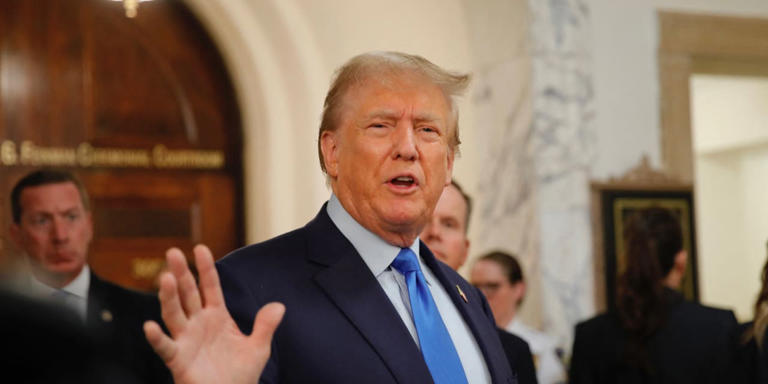Shares of Trump Media and Technology Group Corp. have faced a tumultuous journey since their recent debut on the stock market, marked by the adoption of former President Donald Trump’s initials as their ticker symbol. The transition from “DWAC” to “DJT” followed the company’s merger with a special-purpose acquisition company. However, despite initial optimism surrounding the stock’s launch, it has encountered significant downward pressure in the days that followed.
The decline in Trump Media’s shares cannot solely be attributed to short sellers, as Ihor Dusaniwsky, managing director of financial analytics at S3 Partners, points out. Instead, the prevailing trend suggests that former bullish investors are now exiting their positions, contributing to the stock’s downward trajectory. This shift in sentiment underscores the complexities of market dynamics and investor behavior, which can exert considerable influence on stock performance.
On April 2nd, Trump Media’s shares experienced a notable 3.5% decline in afternoon trading, dropping below the $49.95 mark at which they closed on March 25th. This marked a significant reversal from the stock’s initial surge, where it soared as much as 58.9% to an intraday high of $79.38 on March 26th before retracting to close the day up 16.1% at $57.99. Subsequently, the stock has witnessed a 14.1% decline, reflecting the heightened volatility characteristic of newly listed securities.
One of the key factors constraining short selling activity on Trump Media’s shares is the scarcity of available shares for borrowing, coupled with exorbitantly high borrowing costs. As Dusaniwsky highlights, stock-borrow rates have surged to between 500% to 600% fee levels, making shorting the stock financially prohibitive for many investors. This scarcity of borrowable shares has limited the ability of short sellers to exert downward pressure on the stock price, shifting the focus to selling by long investors who previously held bullish positions.
Despite the limited impact of short selling on Trump Media’s stock, short interest in both the DJT and DWAC tickers remains significant, comprising 12.6% of the shares available for public trading. However, these short sellers have faced substantial losses, with estimated mark-to-market profits of about $42 million in early April offset by losses of approximately $126 million in March.
The prevailing market conditions have left short sellers in a precarious position, with the potential for a short squeeze looming. This scenario, characterized by a rapid surge in a stock’s price as short sellers scramble to cover their positions, could further exacerbate volatility in Trump Media’s shares. Nonetheless, the combination of mounting losses and exorbitant borrowing costs has created a challenging environment for short sellers, underscoring the unpredictable nature of financial markets and the importance of risk management strategies.
